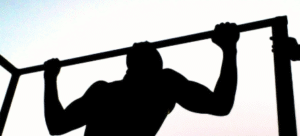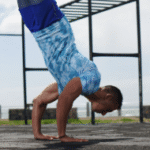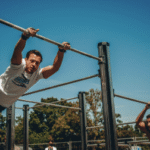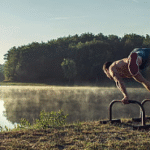Questions to Ask Before Booking Private Calisthenics Sessions
Booking private calisthenics sessions in Houston is a significant investment in your fitness journey, offering unparalleled personalization and accelerated results. However, to maximize this investment and ensure a successful partnership, it’s absolutely crucial to ask the right questions before committing. This detailed guide provides a comprehensive list of inquiries to help you choose the best coach for your needs.
—
Introduction: Why Asking the Right Questions Matters
In Houston’s diverse fitness market, many trainers offer private sessions, but not all are created equal, especially when it comes to a specialized discipline like calisthenics. Asking targeted questions empowers you to:
Assess Competence: Verify the coach’s expertise and experience.
Align Philosophies: Ensure their training approach matches your goals and preferences.
Understand Logistics: Clarify practicalities like cost, scheduling, and location.
Ensure Compatibility: Determine if you’ll have a good working relationship.
—
Category 1: Coach’s Qualifications & Expertise (Ensuring Competence)
These questions establish the coach’s foundational knowledge and their specialization in calisthenics.
- What personal training certifications do you hold, and are they NCCA-accredited?
Why it’s important: NCCA accreditation signifies a gold standard baseline knowledge (e.g., NASM, ACE, ACSM, NSCA). This ensures they understand basic anatomy, exercise science, and safety.
- Do you have specialized calisthenics or bodyweight training certifications/background?
Why it’s important: This is crucial. General CPTs may not have the in-depth knowledge of calisthenics progressions, regressions, and specific skill acquisition. Look for certifications like PCC (Progressive Calisthenics Certification), or mention of methodologies like GymnasticBodies.
- How long have you been coaching calisthenics specifically?
Why it’s important: Experience matters. A coach with several years of dedicated calisthenics coaching will have seen diverse client issues and learned effective solutions.
- What is your personal calisthenics background and experience? Do you train calisthenics yourself?
Why it’s important: While not strictly mandatory for teaching, a coach who practices what they preach often has a deeper, more intuitive of the movements and progressions.
- Do you have experience coaching clients with goals or limitations similar to mine?
Why it’s important: If you want to learn a specific skill (e.g., handstand, muscle-up) or have a specific challenge (e.g., recovering from a shoulder injury, new to fitness), a coach with relevant experience will be more effective.
- Can you provide client testimonials or a portfolio (e.g., before/after photos, videos of client progress)?
Why it’s important: Real results from previous clients are strong indicators of a coach’s effectiveness.
—
Category 2: Training Methodology & Philosophy (Aligning Approaches)
These questions help you understand how the coach trains and if their approach aligns with your learning style and preferences.
- What is your overall coaching philosophy for calisthenics?
Why it’s important: Do they prioritize safety first, then progress? Do they focus on high intensity, volume, or skill mastery? Do they have a holistic approach to fitness (integrating nutrition, recovery)?
- How do you conduct your initial assessment for a new calisthenics client?
Why it’s important: A thorough assessment should cover strength, mobility, flexibility, movement patterns, and injury history. For online coaching, ask about video analysis for remote assessment.
- How do you design personalized programs for calisthenics? What role does periodization play?
Why it’s important: Programs should be custom-built and adapt over time. Ask about their approach to progressive overload, deloads, and cycling training phases (periodization) to prevent plateaus.
- How do you provide form correction and feedback during sessions (and for online clients, how do you use video analysis)?
Why it’s important: Crucial for safety and skill mastery. Ask about verbal cues, tactile cues (for in-person), and how often/in what detail video analysis feedback is provided for online clients.
- How do you manage clients with existing injuries or physical limitations?
Why it’s important: A qualified coach will ask for medical clearance and work in conjunction with your physician or physical therapist to design a safe, adapted program. They should understand their scope of practice.
- What is your approach to integrating mobility work into calisthenics routines?
Why it’s important: Mobility is foundational for advanced calisthenics and injury prevention. A good coach will have a structured approach to improving your active range of motion.
- Do you offer nutrition guidance, and what is your scope of practice in that area?
Why it’s important: While trainers cannot provide meal plans (only RDNs can), they should be able to offer evidence-based general nutrition advice to support your calisthenics goals. Ask about their approach to recovery as well (sleep, stress management).
—
Category 3: Logistics & Practicalities (Ensuring Fit & Convenience in Houston)
These questions cover the practical details of training that impact your convenience and adherence.
- Where do you conduct your private calisthenics sessions in Houston?
Why it’s important: Clarify if they train at a specialized studio (e.g., Calisthenics & Lifestyle Club Houston), a commercial gym (and if you need a membership there), public parks (e.g., Memorial Park, Buffalo Bayou Park), your home, or offer online coaching. Choose a location convenient for your Houston lifestyle.
- What is your typical availability and scheduling process?
Why it’s important: Ensure their schedule aligns with yours, especially if you have a demanding work or travel schedule. Ask about booking procedures and how far in advance sessions need to be scheduled.
- What equipment do you use or provide for calisthenics training?
Why it’s important: Beyond basic bodyweight, some coaches bring portable equipment (resistance bands, gymnastics rings, parallettes) or train in facilities with specialized calisthenics gear.
- What is your pricing structure (e.g., per session, packages, monthly)? Are there any hidden fees?
Why it’s important: Get a clear breakdown of costs. Ask about discounts for purchasing packages, introductory offers, or facility fees if applicable.
- What is your cancellation and rescheduling policy?
Why it’s important: Understand the terms to avoid unexpected charges for missed sessions.
- How do you track client progress in calisthenics?
Why it’s important: A good coach uses objective metrics (reps, sets, hold times, progression levels) and qualitative observations (form improvement, movement quality) to show your advancement. Ask if they use apps or a physical log.
- What communication channels do you use outside of scheduled sessions?
Why it’s important: Understand how you can ask questions, report progress, or address concerns between sessions (e.g., messaging app, email).
—
Category 4: Client-Coach Compatibility (Assessing the “Match”)
These questions, often assessed during the initial consultation and a trial session, are crucial for the long-term success of the partnership.
- How would you describe your coaching style (e.g., motivating, strict, patient, technical, supportive)?
Why it’s important: Your personality and learning style need to align with their coaching approach for an effective and enjoyable relationship.
- What do you expect from your clients in terms of commitment, communication, and effort?
Why it’s important: Understand their expectations to ensure you can meet them, fostering a productive partnership.
- Do you offer a trial session or an initial complimentary consultation?
Why it’s important: This is your best opportunity to experience their coaching firsthand, gauge compatibility, and ask all these questions before making a financial commitment.
—
Conclusion: Empowering Your Choice in Houston
Asking these comprehensive questions before booking private calisthenics sessions in Houston empowers you to make an informed decision. By thoroughly vetting a coach’s qualifications, their methodology, clarifying logistics, and assessing personal compatibility, you significantly increase your chances of finding the “perfect match” – an expert who will not only guide you safely and efficiently to master calisthenics but also ensure your investment in personalized fitness truly pays off.

Questions to Ask Before Booking Private Calisthenics Sessions
Route
Calisthenics Gym Houston Functional Bodyweight Training
Secondary phone: (346) 483-3195
Email: info@calisthenicsclubhouston.com
URL: https://calisthenicsclubhouston.com/
Monday 6:00 AM - 7:00 PM Tuesday 6:00 AM - 7:00 PM Wednesday 6:00 AM - 7:00 PM Thursday 6:00 AM - 7:00 PM Friday 12:00 PM - 6:30 PM Saturday 9:45 AM - 12:00 PM Sunday 3:00 PM - 5:00 PM





